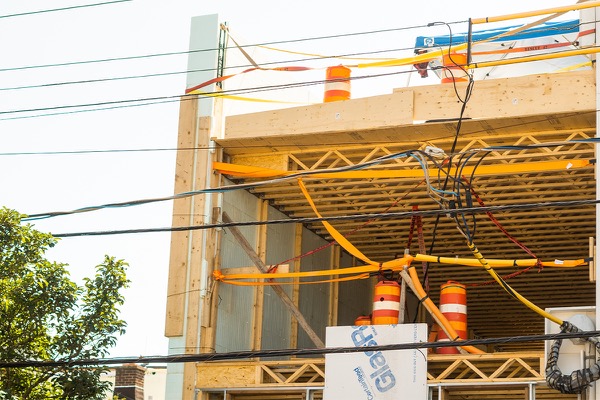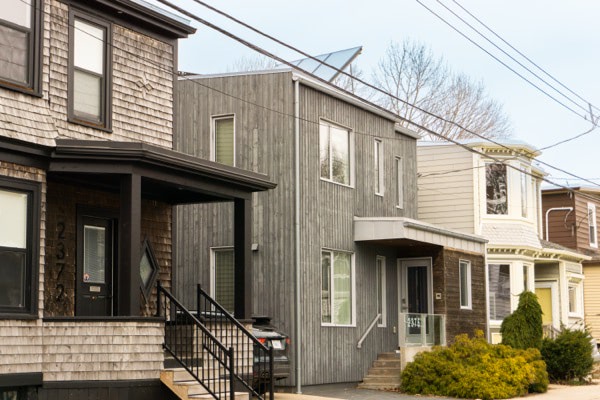How fast can you pay your mortgage off? Can you speed up the process? Here’s what you need to know!

Building your next home: How it works
If you are considering building your next home, it’s important to understand how the process works before you dive into it. Building a home instead of buying a pre-built property is a completely different experience that requires a lot of planning, patience, and professional help! Here are the main points to know about building a new house.
New home construction
Building your next home as opposed to buying one is called new home construction. You are creating a new property from the ground up, which will involve all sorts of builders, contractors, and other professionals. New home construction has a different type of mortgage process from buying a pre-built home. Since there is no physical property to finance yet, you are basically getting a mortgage on the costs of building the new home. This is called a construction mortgage.
Who are the lenders?
Since new home construction is not a traditional form of homeownership, not all traditional lenders will offer this type of financing. Construction mortgages are more risky for the lender than conventional mortgages. Without a standing property to use as collateral, the lender does not have physical reassurance or backup in case of a mortgage default. Plus, new home construction inherently possesses more opportunities for problems like building delays or shut downs, or financial challenges for the borrower. This is a lengthier and more complicated process, and some lenders do not want to take these kinds of chances. The lenders who do finance construction mortgages typically have higher interest rates to make up for the lack of collateral. As the borrower, you will need to budget for higher mortgage costs than you would with a conventional mortgage. Your mortgage broker can help connect you with lenders who deal with construction mortgages!
The common stages for financing
Unlike a conventional mortgage, lenders do not give the borrower the full mortgage amount at one time during a construction mortgage. Financing is provided in stages, called draws, that correspond to the construction process. Each lender may have slightly different stages of draws, depending on their specific setup. However, there are four typical stages where draws are released.
Completing the basic foundation work for the home is the first stage. This is near the beginning of the process, when construction is just getting underway. At this point, lenders will provide 15 per cent of the total cost of the mortgage. The second stage accounts for roofing and walling, which represents about 25 per cent of the total cost. Plumbing and drywalling are the third stage, and these steps are about 30 per cent of the total cost. Finally, the fourth stage includes the remaining work to be done to complete the property, which is the last 30 per cent of the total cost. Between stages, there will likely be an inspector who makes sure the home is being built on time, and they will report back to the lender.
What are the pros and cons?
Building your next home can either be a dream or a nightmare situation, depending on the borrower! Your individual needs and preferences will influence how you feel about this process. On the plus side, borrowers who build their home have complete say in all aspects of its design and personalization. The home will be brand new and can be customized to your liking. Many people love the idea of building a home that perfectly reflects their personality, because it makes them feel the most comfortable and satisfied.
However, building your next home is usually a more expensive process. You are paying higher interest rates on the mortgage, and you are also paying to build the home itself. This includes the materials, contractors, and buying all the appliances that often come with a pre-built home. This is a pricey project that requires a lot of saving!
Get in touch with a broker first!
If you are considering building your next home, it’s important to reach out to a mortgage broker early. This is a special type of project that needs a lot of careful planning and budgeting, and it’s a new experience for many people. Brokers are a great way to gather the information you need to start preparing for a successful experience. Plus, brokers can help borrowers access the right lenders for new home construction! The mortgage process is a bit more complicated, so it’s best to work with a broker who can help you gain access to the best product and lender.
Building your next home will certainly be an adventure, but make sure you’re prepared! It’s essential to reach out to a broker early on so you can have the best possible start. If you have any questions about your mortgage, get in touch with us at Clinton Wilkins Mortgage Team! You can call us at (902) 482-2770, or contact us here.


